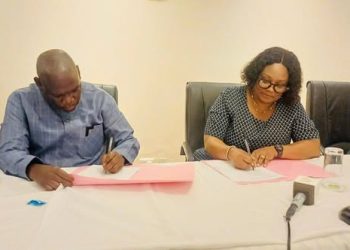Melo News | Lusaka, 20th January, 2025
In a development that could have far-reaching implications for Zambians and other foreign nationals, the future of birthright citizenship in the United States may be in jeopardy. Birthright citizenship, a policy enshrined in the 14th Amendment of the U.S. Constitution, guarantees that children born on U.S. soil automatically acquire American citizenship, regardless of their parents’ nationality or immigration status. However, this long-standing principle is now under scrutiny, with debates intensifying about its potential repeal.
For many Zambian families, the promise of U.S. birthright citizenship has been a significant consideration when planning their lives and futures. A U.S. passport not only provides access to world-class education and healthcare but also opens doors to unparalleled global opportunities. The potential elimination of this right could disrupt these plans and reshape the landscape for international families.
The move to reconsider birthright citizenship stems from a broader debate in the U.S. about immigration policy and national identity. Critics argue that the policy has been misused, enabling so-called “birth tourism,” where foreign nationals travel to the U.S. specifically to give birth, thereby securing citizenship for their children. Proponents, however, emphasize that the policy reflects core American values of equality and inclusivity.
Recent statements from policymakers and political leaders suggest that significant changes to this policy could be on the horizon. While such changes would likely face legal challenges, the very possibility underscores the need for foreign nationals, including Zambians, to stay informed and proactive.
If birthright citizenship were to be repealed, children born in the U.S. to Zambian parents might no longer automatically qualify for U.S. citizenship. This shift could have several implications:
- Residency and Immigration Status: Families may face increased challenges in securing long-term residency or citizenship for their children.
- Travel Considerations: Zambians considering travel to the U.S. for childbirth may need to rethink their plans.
- Legal and Financial Planning: Families may need to explore alternative pathways for securing their children’s future opportunities, whether through education or immigration sponsorships.
Given the potential implications of this policy shift, it is crucial for Zambians to monitor developments closely. Here are some steps to consider:
- Stay Updated: Follow credible news sources and official announcements about U.S. immigration policies.
- Seek Legal Advice: Consult with immigration lawyers to understand how potential changes might affect your family.
- Plan Strategically: If you are considering travel to the U.S. for childbirth, weigh the risks and explore other options.
As global policies evolve, it is more important than ever for Zambians to stay informed and prepared. The possible end of birthright citizenship in the U.S. is a reminder of how quickly international dynamics can shift. By staying vigilant and proactive, Zambian nationals can navigate these changes effectively and safeguard their families’ futures.
The implications of this potential policy change are profound, not just for individuals but for entire communities. Let us remain engaged, informed, and ready to adapt to the challenges and opportunities that lie ahead.








































